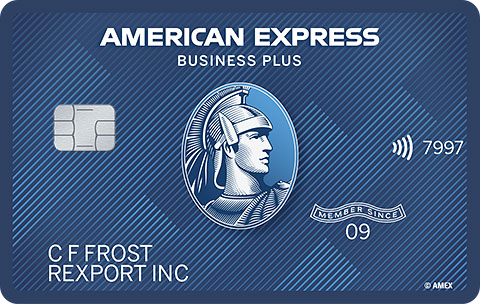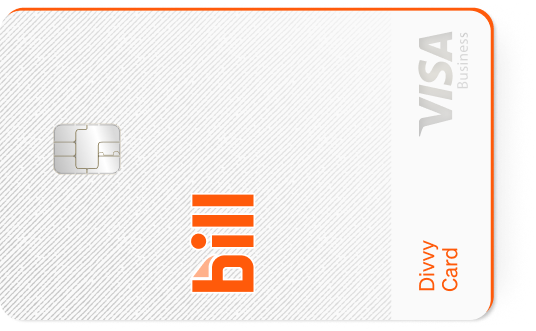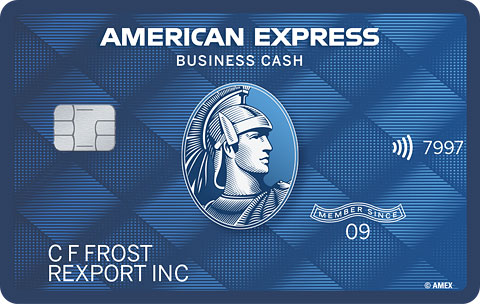Summary
- If you're self-employed or receive 1099 income, you can still qualify for a business credit card — even as a sole proprietor using your SSN.
- Use credit cards to manage expenses, improve cash flow, earn rewards, and build business credit from the ground up.
- Be aware that most issuers will check your personal credit and may report business activity to personal credit bureaus.
- Look for cards with features that match your needs — like 0% intro APRs, expense tracking, or flexible cash back.
Editorial note: Our top priority is to give you the best financial information for your business. Nav may receive compensation from our partners, but that doesn’t affect our editors’ opinions or recommendations. Our partners cannot pay for favorable reviews. All content is accurate to the best of our knowledge when posted.
If you are self-employed as an independent contractor, freelancer or someone who receives 1099 income, you may not realize you can qualify for a small business credit card. Getting a business credit card can improve cash flow, build business credit and offer lucrative rewards. Here are some terrific credit cards for those who are self-employed.
Pros and cons of business credit cards for self-employed
Pros
- Expense tracking
- Superior fraud protection
- Rewards
- Build business credit
- Often available to startups
Cons
- Personal credit check typically required; with good to excellent credit
- Some issuers report account to personal credit
- Credit CARD Act does not apply
Can I get a business card with 1099?
If you’re self-employed, or work as a freelancer, then your clients will often issue you 1099 forms. You can qualify for a business card as a freelancer, even if you’re an unincorporated sole proprietor. To do so, just supply your Social Security Number (SSN) instead of an Employer Identification Number (EIN). Either way, most business cards will approve cardholders based on their personal credit report and credit score.
100+ business credit cards in one click
Business credit cards can help you when your business needs access to cash right away. Browse your top business credit card options and apply in minutes.
What to look for in a credit card for self-employed?
When you’re self-employed, you want to use a credit card that offers the features, benefits and rewards that are best suited to the business you’re in. For example, those who need to carry a balance for short term financing can benefit from having a card that offers a 0% APR promotional rate on new purchases, balance transfers or both. And those who avoid interest charges by paying their balance in full will appreciate a rewards card that offers bonuses for their most common expenses, such as purchases from gas stations, office supply stores or phone service providers. Self employed credit card users should also examine the rates and fees of the cards, as well as benefits such as purchase protection and travel insurance policies.
Best business credit cards for self-employed
Here are five great business credit card options for the self employed.
1. Generous 0% Intro APR Offer: The Blue Business® Plus Credit Card from American Express
This card offers new applicants 0% on purchases for 12 months from date of account opening. You can also Earn 2X points on everyday business purchases such as office supplies or client dinners. 2X applies to the first $50,000 in purchases per year, 1 point per dollar thereafter. Terms and limitations apply.
There’s $0 annual fee for this card, and you can order additional employee cards at no extra cost.
The Blue Business® Plus Credit Card from American Express
A great business card for flexible spending and travel rewards points.
Pros
- Competitive intro APR offer and rewards rate
- No annual fee
- For a limited time, earn Membership Rewards® points on initial spending.
Cons
- Foreign transaction fee.
Intro APR
Purchase APR
Annual Fee
Welcome Offer
2. Flexibility for Amazon shoppers:
If you find yourself spending regularly on Amazon, Whole Foods, or AWS, consider the . The most appealing benefit is that you can choose between extra time to pay when cash flow is tight or a high cash back rate.
3. Expense management tools: BILL Divvy Corporate Card
If you’ve been self-employed for any length of time, you know that expense reports and tracking business expenses can be a major headache. BILL Divvy Corporate Card streamlines spend management by combining corporate cards with free expense management software. And yes there are rewards: Up to 7x points, based on payment settings. Pay faster to earn higher rewards.
BILL Divvy Corporate Card
Eligibility based more on revenue, requires full repayments monthly.
Pros
- Free and flexible expense management platform
- No annual fee.
Cons
- No early spend bonus and lower rewards than other cards
- Must pay off all balances in full each month.
Intro APR
Purchase APR
Annual Fee
Welcome Offer
4. Solid cash-back rewards: The American Express Blue Business Cash™ Card
If you aren’t interested in keeping track of bonus spending categories and just want a solid cash back reward card, consider the The American Express Blue Business Cash™ Card.
- Welcome offer: Earn a $250 statement credit after you make $3,000 in purchases on your Card in your first 3 months..
- Rewards: Earn 2% cash back on all eligible purchases on the first $50,000 of purchases each calendar year, 1% thereafter.
- Intro APR: 0% on purchases for 12 months from date of account opening.
One popular feature is the flexibility of the credit limit. With the The American Express Blue Business Cash™ Card you’ve got the power to spend beyond your credit limit with Expanded Buying Power. Just remember, the amount you can spend above your credit limit is not unlimited. It adjusts with your use of the Card, your payment history, credit record, financial resources known to American Express and other factors. The annual fee is $0.
One of the highest cash back rates available for small business cards.
Pros
- Attractive intro financing offer
- High rates of cash back for business spending
- No annual fee.
Cons
- No rewards bonus for initial spending
- Foreign transaction fees.
Intro APR
Purchase APR
Annual Fee
Welcome Offer
Can I get a business credit card if I’m self-employed?
Very often the answer is yes; you can get a business credit card if you are self-employed, operate your business as a sole proprietor or freelancer, or if you are a 1099 contractor. Most credit card issuers base the decision on the owner’s personal credit score and income from all sources, not just the business. (There are just a few issuers that don’t check personal credit and require at least one year in business and strong business revenues.) You will generally need a good to excellent personal credit history to qualify.
Of course, you may also want to get a personal credit card if you are self-employed to cover personal expenses. Again, the credit decision will be based in large part on your personal credit score and income from all sources, not just the business.
Which types of credit cards are best for self-employed individuals?
Many self-employed business owners rely on personal credit cards; after all, they probably already have several! But you may want to think about getting a business credit card. Small business card options are available from major credit card companies including American Express, Bank of America, Chase, Discover, U.S. Bank and Wells Fargo. There are many to choose from so you’ll want to carefully consider how you plan to use your credit card.
If you pay your balance in full, you’ll likely look for perks in the form of cash back or travel rewards. Sign-up bonuses and welcome offers can provide significant additional benefits in the first year. If you’re looking for cash back, keep in mind that some cards offer bonus points or more points in certain spending categories (gas, restaurants, etc.) Make sure you have a good idea of how much you plan to spend in those bonus categories, or stick with a rewards credit card with generally solid cash back no matter how much you spend.
While points or miles are the most popular travel benefits, other additional benefits such as airport lounge access, free checked bags, priority airline boarding or others may be valuable if you’re a frequent traveler.
How to apply for a business credit card for self-employed
Unless you respond to a credit card offer you receive in the mail or directly from the bank or credit union where you have your business bank account, you’ll likely fill out your credit card application online. That’s the most convenient way to apply. Answer a few questions and you’ll probably get a decision in minutes. You’ll likely need:
- Your Social Security number
- Your Federal Tax ID or Employer Identification Number (EIN)
You’ll likely need to provide some basic information about your business (legal business name, type of entity, business phone number etc.). It is helpful to have all of that information set up before you apply to help ensure your card reports properly to business credit bureaus, but some self-employed business owners don’t have a separate business entity and so the information will not be different than their personal information.
Follow our free guide 15 Steps to Make Your Business Legit to start your business the right way.
How to qualify for a self-employed business credit card
Again, a personal credit check is quite common and many small business card issuers require good credit or excellent credit. You can include income from all sources, not just 1099 or self-employment income. If you have a day job, for example, you may include that income in the personal income section of your application. If your spouse or partner has income and would contribute to your business if needed, you may include that income in the personal income section as well. Optionally, you may include child support or alimony or other types of income.
Other financing options for self-employed
Credit cards may be an excellent source of short-term financing for your business, especially if you can get a card with a low interest rate or even a 0% introductory APR. But there may be times when you need a small business loans. Those options may include:
- Lines of credit
- Term loans
- Invoice financing or factoring
- Equipment financing
Though there are a number of loans for self-employed individuals, it’s important to keep in mind that some lenders will not lend to sole proprietors who don’t operate with a formal business entity such as an LLC or S corporation.
Let’s find the right loan for your business
Nav serves nearly every kind of business, and our experts will match you to the right fit for your business needs.
Build your foundation with Nav Prime
Options for new businesses are often limited. The first years focus on building your profile and progressing.
Get the Main Street Makers newsletter
Rate this article
This article currently has 4 ratings with an average of 5 stars.

Gerri Detweiler
Education Consultant, Nav
Gerri Detweiler has spent more than 30 years helping people make sense of credit and financing, with a special focus on helping small business owners. As an Education Consultant for Nav, she guides entrepreneurs in building strong business credit and understanding how it can open doors for growth.
Gerri has answered thousands of credit questions online, written or coauthored six books — including Finance Your Own Business: Get on the Financing Fast Track — and has been interviewed in thousands of media stories as a trusted credit expert. Through her widely syndicated articles, webinars for organizations like SCORE and Small Business Development Centers, as well as educational videos, she makes complex financial topics clear and practical, empowering business owners to take control of their credit and grow healthier companies.



